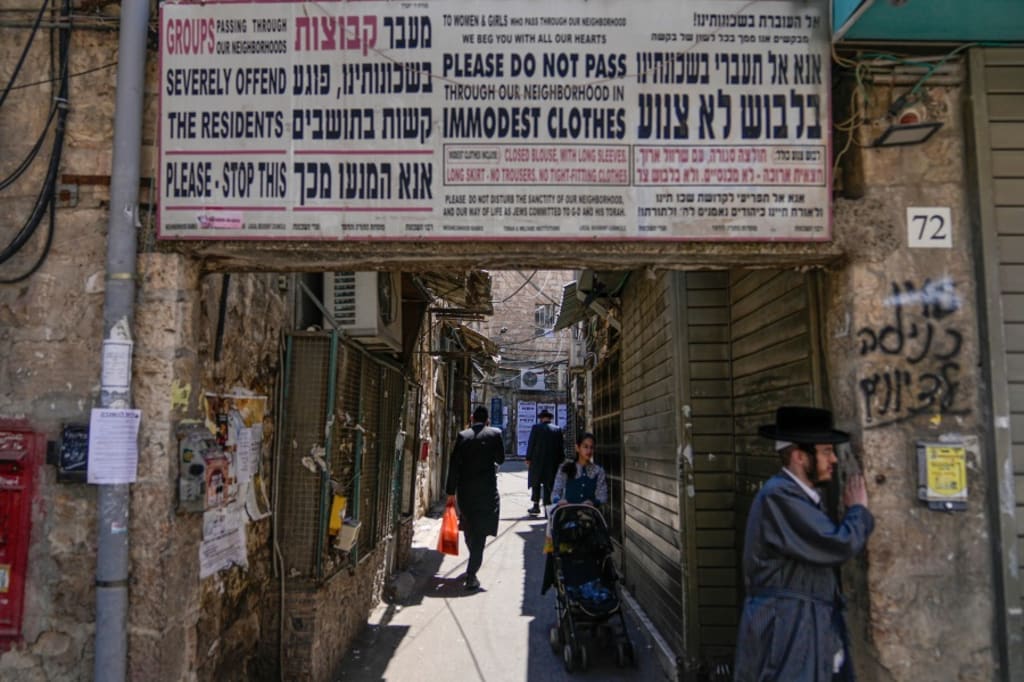Flashpoint in Israel: Divide between religious and secular Jews heats up under Netanyahu’s rule
The sound of children and music echoed down a narrow basement hallway in Israel as they scrambled in a pool of balls

The sound of children and music echoed down a narrow basement hallway in Israel as they scrambled in a pool of balls, climbed on a jungle gym, munched popcorn and laughed.
The atmosphere changed suddenly on that Saturday last month, as at least a dozen religious men appeared and blocked the entrance, accusing the indoor playground of desecrating the Jewish sabbath by opening for business. Angry parents confronted them, scuffles broke out and in an instant, the center in this mixed city had become a flashpoint symbol of a larger battle between secular and religious Jews in Israel.
“I think it represents what’s going on in the country,” said Tzipi Brayer Sharabi, a 38-year-old mother who says she was attacked and thrown to the ground during the May 20 incident. “I want my kids to live how they choose to live. I don’t want somebody to tell them how they should eat, how they should dress, what they should do on Shabbat.”
Similar incidents have long upset the tenuous balance between the communities. But with ultra-Orthodox parties now wielding unprecedented power in Israel’s new government — and playing a key role in a contentious plan to overhaul the legal system — they are aggravating concerns among secular Israelis that the character and future of their country is under threat.
Thanks to its supercharged political clout, the h aredi community has gained massive budgets that critics say will entrench its isolated way of life and weaken Israel’s economic prospects as the ultra-Orthodox population balloons.
“We have two kids. They have 10 kids. They’re going to be the majority here, eventually,” said Brayer Sharabi, a secular Israeli whose elbow was broken in the scuffle. “What’s going to happen to this place once they have the majority?”
Israel’s ultra-Orthodox, known as haredim, make up 13% of the country’s 9.7 million population. The cloistered community has long been at odds with the secular majority, clashing over military conscription, their integration into the workforce and the basic tenets that guide their lives. Haredi Jews in Israel also are growing faster than any other group, at about 4% annually.
The many differences between religious and secular Jews have chafed the country throughout its 75 years. Under Prime Minister Benjamin Netanyahu’s government, the sense has sharpened among secular Israelis that their lifestyle may have an expiration date.
Netanyahu, meanwhile, brushes off such criticism, saying the ultra-Orthodox are Israeli citizens who deserve funding and that he is working to integrate them into the workforce.
The ultra-Orthodox mostly live in separate towns and city neighborhoods, and unlike most secular Jews, most are not conscripted in the military under a decades-old system of exemptions that allows them to study religious texts instead. Many continue religious study well into adulthood and do not work, living off government stipends and grating on the nerves of the country’s tax-paying middle class.
Ultra-Orthodox schools widely do not teach a core curriculum of math or English. Experts say this gives them few skills to enter the work world, creating a recipe for poverty and increased dependence on government assistance as the population grows.
The ultra-Orthodox say their children nonetheless deserve robust state funding for education, and that their otherwise insular communities protect a centuries-old way of life. Their leaders also say they contribute to the economy by paying significant sums of sales tax on consumer purchases for their large families.
Yinon Azulai, a lawmaker with the ultra-Orthodox Shas party, last month in a parliament speech denounced what he called “the wild incitement raging these days and running in the streets of baseless hatred for the ultra-Orthodox community” after a popular TV host called the community “blood suckers.”
“I don’t intend to apologize for being haredi,” he said on the Knesset floor.
Read more - Firenewsfeed





Comments
There are no comments for this story
Be the first to respond and start the conversation.